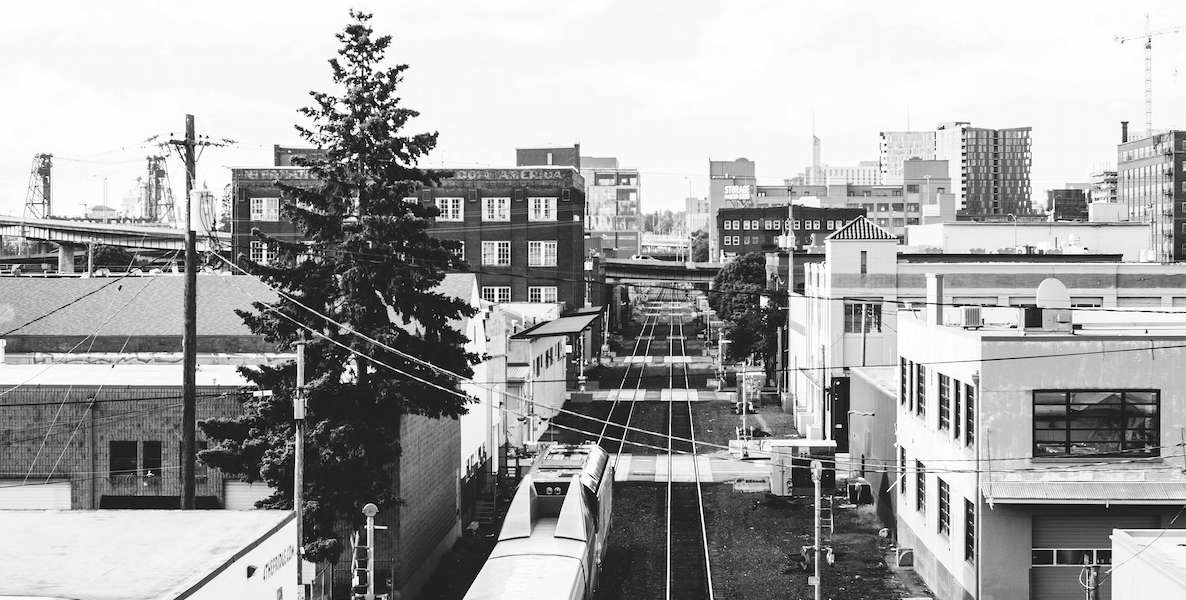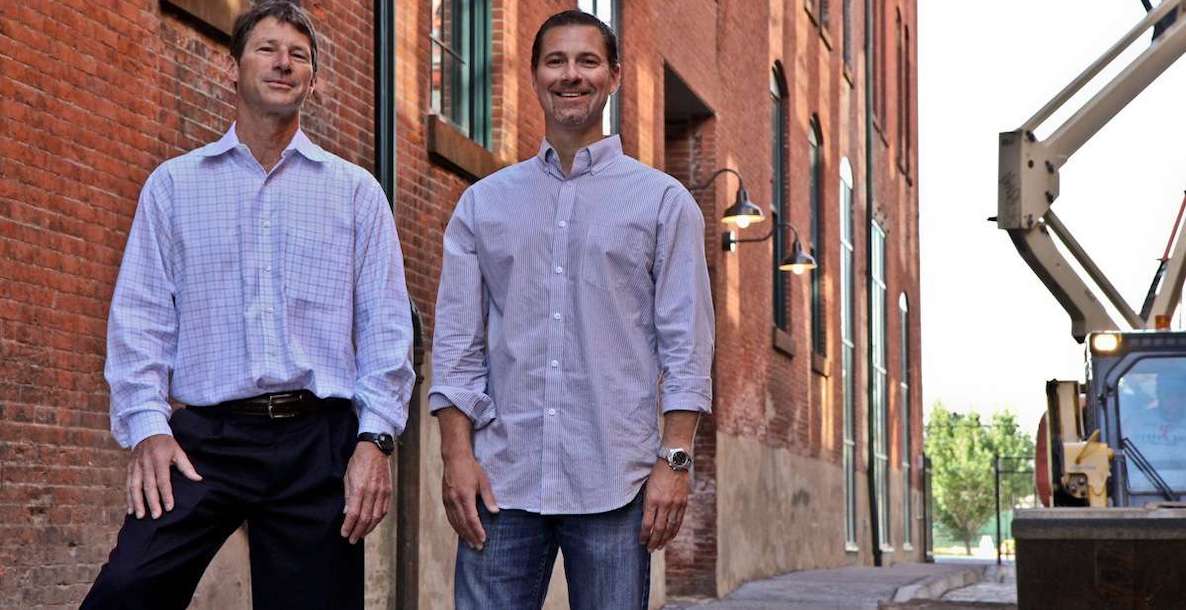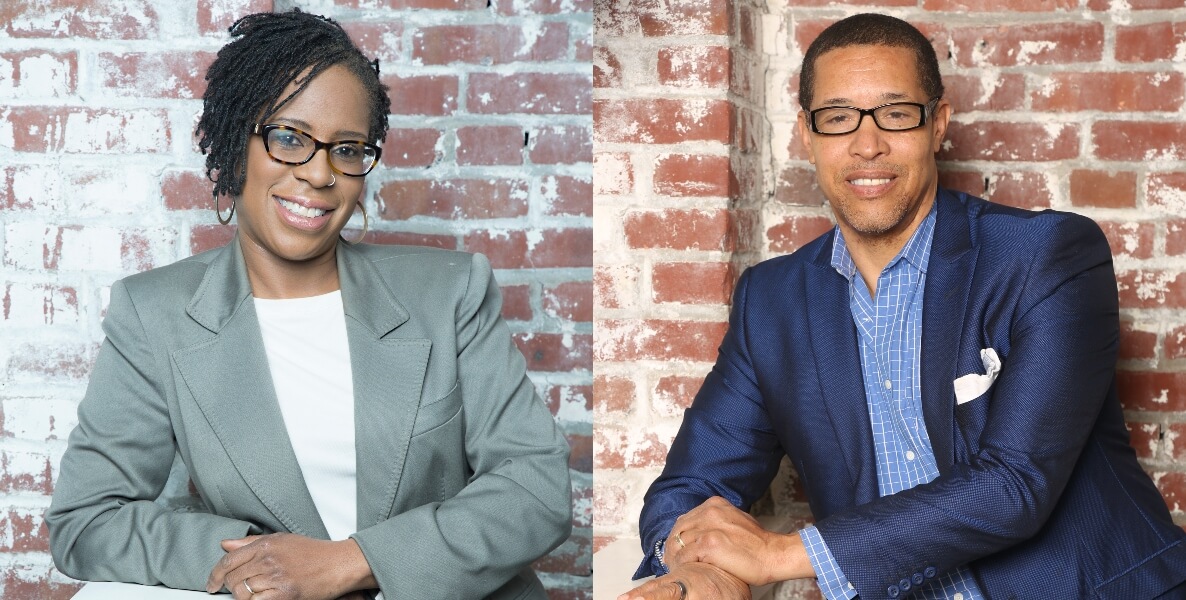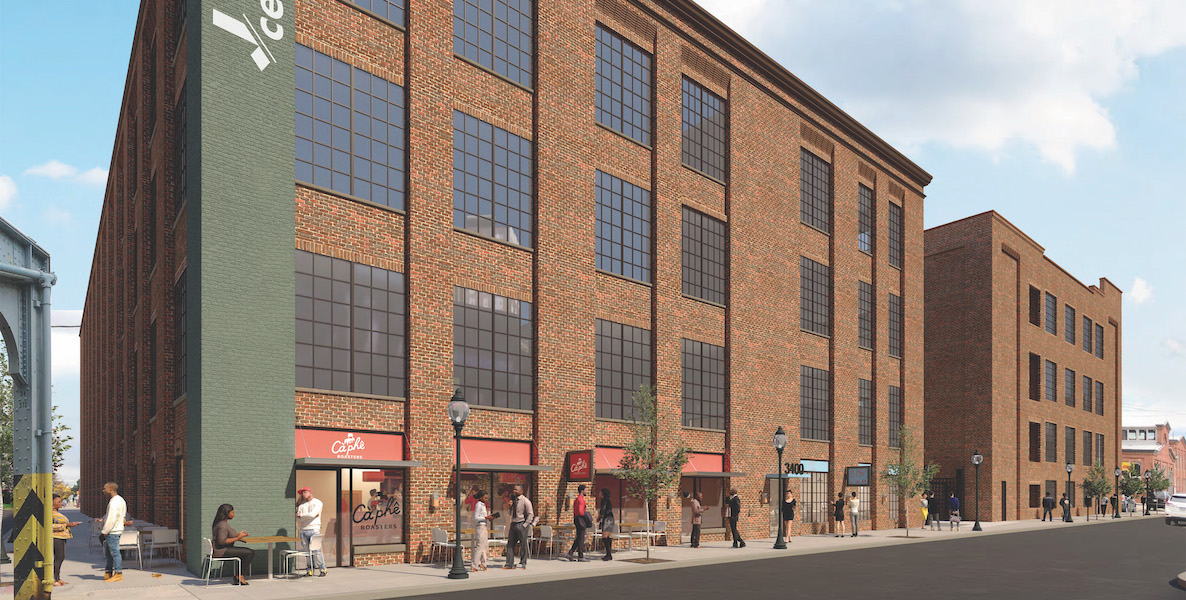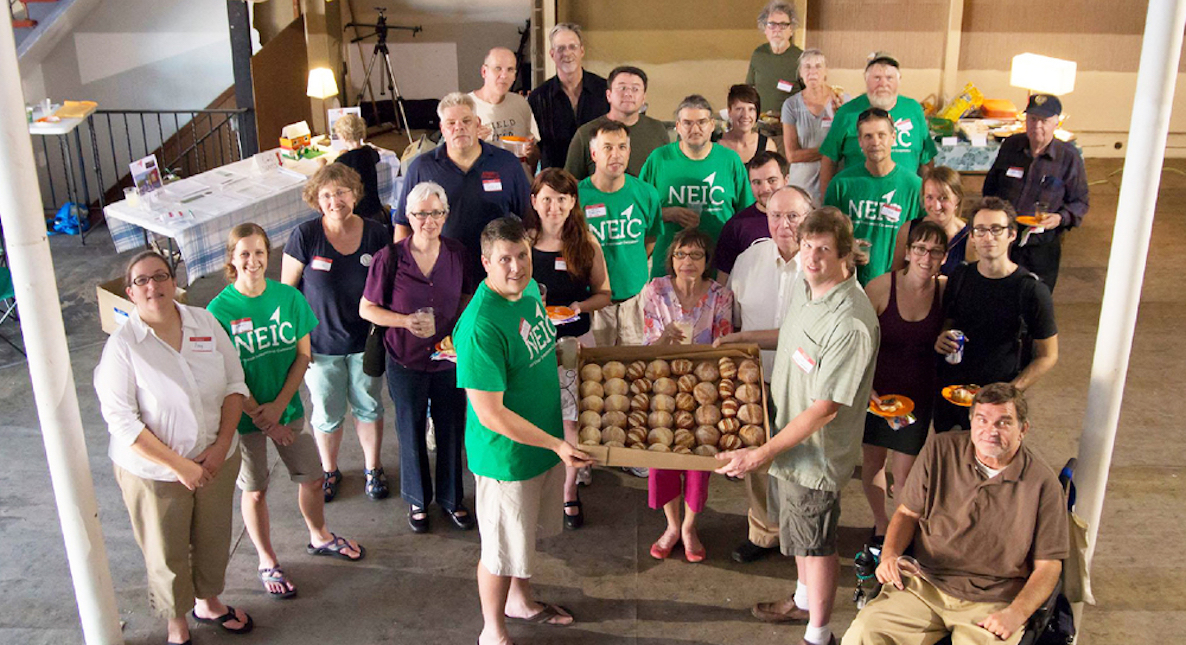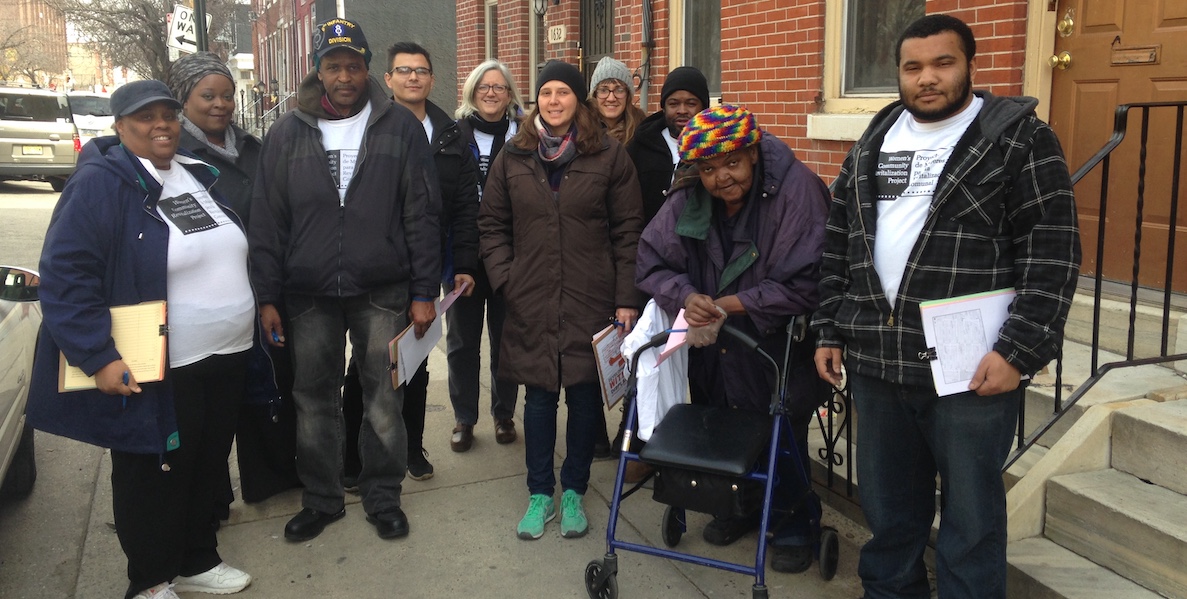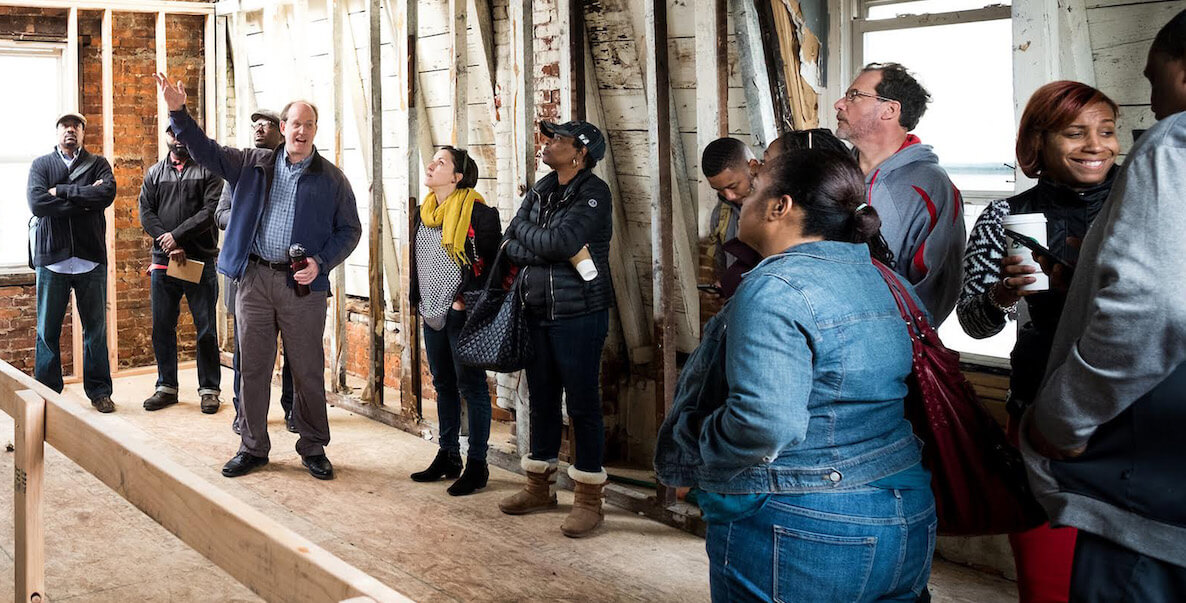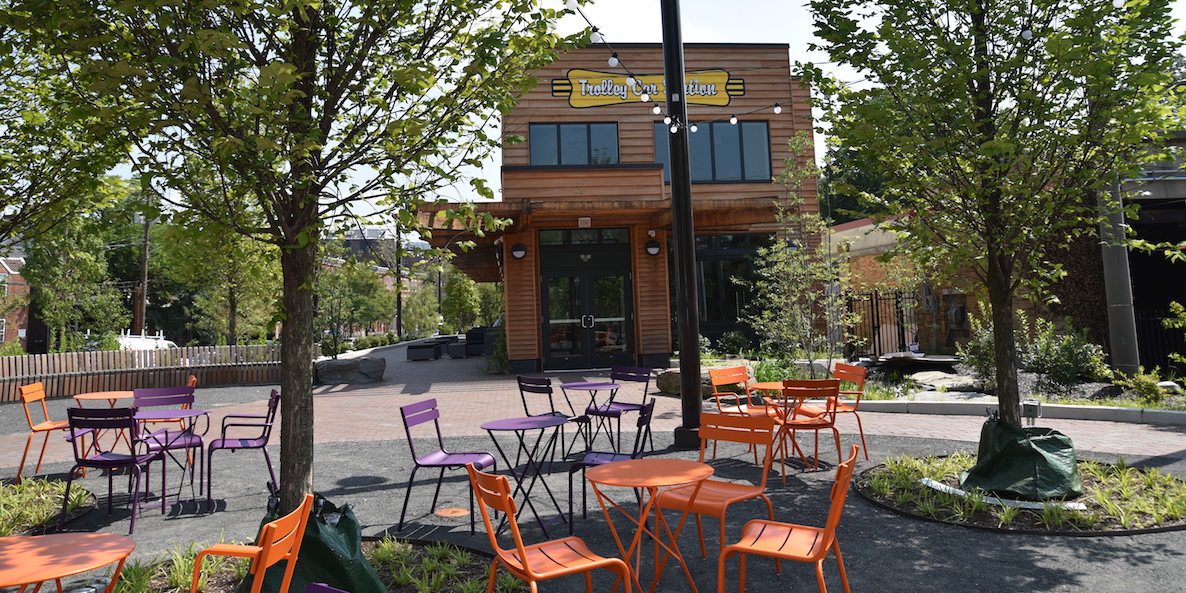In 2015, Ken Weinstein was facing a problem. As a long time real estate developer and president of PhillyOfficeRetail, he’d gained over 30 years of experience and wanted to share that knowledge with others hoping to break into the industry. He did this, first, by getting coffee with people interested in real estate to help them identify how they too could enter the industry.
Calls and emails started piling up. Weinstein would have several people a week contact him for advice. Eventually, more people were contacting him than he had time to meet with and he had to start turning people down. The conversations he had time for often weren’t productive either as he was so over-scheduled.
“I was sitting down with people for an hour at a time and I really wasn’t helping them,” Weinstein says. “I was acting more like a cheerleader than actually getting them started in the real estate world.”
Weinstein’s goal wasn’t as simple as introducing people to the real estate business, either. Government and social change work had also been a part of his career, first as a chief of staff to a former City Council member and later in 2017 when he launched Wage Change, a campaign that pushed local businesses to commit to paying their employees $11 per hour minimum. He knew he didn’t want to just teach people to raze properties, collect their money and then leave an area.
Listen to this podcast about Jumpstart Germantown
Weinstein, who began his real estate career in Germantown, had seen the ways development had often adversely affected Philadelphians. A 2019 study by the Federal Reserve Bank of Philadelphia found that 39 census tracts in the city had gentrified from 2000 to the five-year time period between 2010 and 2014—about 11 percent of the city’s poorer neighborhoods.
While that is less prevalent than the common perception of change in Philly, the areas hit hard by gentrification—like Graduate Hospital—are warning signs of what can happen when long-term residents are pushed out of their homes and communities for higher-income residents.
Meanwhile, other neighborhoods are often plagued by the blight and empty lots that come with a lack of investment—something Weinstein hates to see as well.
Fighting Gentrification With Local Development
To help address these problems, Weinstein in 2015 created Jumpstart Germantown, a residential real estate development training program that focuses on helping people break into the industry and fighting gentrification by encouraging people to develop their own communities.
Within three years of its founding, Jumpstart Germantown had already inspired spinoffs in other Philly neighborhoods. Now, there are six Jumpstart programs—Jumpstart Kennsington, Jumpstart Southwest, Jumpstart West Philly, Jumpstart Tioga, Jumpstart North Philly West, and Jumpstart Huntington Park. This year, the model is expanding outside of the city to Norristown and Wilmington, Delaware, and they’re planning to launch a Jumpstart 2.0 program for people looking to transition into commercial real estate.
Weinstein and the PhillyOfficeRetail staff led their first 12 hour Jumpstart Germantown training in 2015, covering the seven steps of real estate development. During the training, want-to-be developers learn the process of residential real estate development, from sourcing the project to financing it and managing their property post-renovation. After the training, students who are interested are paired with a mentee who will continue to guide them through their real estate careers.
![]() Jumpstart Germantown graduated almost 300 people and saw 630 applications to the program in its first three years. Now, over 800 students have completed the program. In particular, Jumpstart has had success in bringing in women and people of color who are often underrepresented in real estate. In New York City, a city with one of the country’s largest real estate industries, for example, white people hold 74 percent of professional real estate roles and women only hold 35 percent, according to a 2014 survey by the Equal Employment Opportunity Commission.
Jumpstart Germantown graduated almost 300 people and saw 630 applications to the program in its first three years. Now, over 800 students have completed the program. In particular, Jumpstart has had success in bringing in women and people of color who are often underrepresented in real estate. In New York City, a city with one of the country’s largest real estate industries, for example, white people hold 74 percent of professional real estate roles and women only hold 35 percent, according to a 2014 survey by the Equal Employment Opportunity Commission.
In contrast, more than 85 percent of Jumpstart Germantown’s graduates have been women and people of color.
“Clearly, there is a need and a desire by women and people of color who have not been able to break into the industry to get going,” Weinstein says. “Five years ago I would go to a meeting of commercial real estate developers and the room would be, say, 95 percent white male. My hope is that five or 10 years from now, that room looks very different.”
“We’re trying to train and mentor very local residents so that people within a community are improving and growing the community and therefore keeping wealth local, rather than having outsiders come in, make money off of a neighborhood and take that income back to where they live,” Weinstein says.
Even during the pandemic, the program has remained popular. A virtual version of the training, which started on September 22, saw 166 participants—a record number of students for any session.
Jumpstart Germantown also runs its own loan program, as a solution to another problem facing new developers: Traditional banks often do not give loans to people with no experience in real estate, something especially true for African Americans.
Graduates have the option of applying for a loan in which Jumpstart lends 85 percent of project costs. Borrowers are then responsible for covering the remaining 15 percent and they have 12 months to buy and rehab a project or sell it and refinance.

After a brief downturn in 2019, the loan program has grown in popularity. To date, it has given out $20 million in loans to developers who have graduated from any of Philly’s seven Jumpstarts. The money Jumpstart Germantown makes from the loan program completely covers the costs of the training program.
While each of the Jumpstart programs follows the model of Jumpstart Germantown, and uses some of their educational materials, they are independently operated by members of the communities they serve. This allows programs to focus on the needs of their communities and to establish their own rules. The Jumpstart West Philly program, for example, only allows residents of West Philly to participate.
In Kensington, the program is run by the socially conscious development firm Shift Capital and Impact, a program that helps people re-enter the workforce through job training programs. West Philly’s program is a collaboration between The Enterprise Center, People’s Emergency Center, Habitat for Humanity Philadelphia and the City of Philadelphia Office of Community Empowerment and Opportunity. Other Jumpstarts, like the ones in Southwest Philly and North Philly West, are run by individuals or real estate development firms.
Expanding Beyond Just Germantown
Communities interested in starting a Jumpstart program can also learn from the Jumpstart “How To” guide which breaks down the steps that community leaders should take when developing their own program based on the model. It tackles issues like how to work with existing real estate developers in the community and how to find mentors for the program. The coursework developed by Jumpstart Germantown is open source and is made available to the other area Jumpstart programs.
“We not only share that information with new Jumpstarts, but we also act as the support network for them, answering questions along the way, helping them get started, helping them grow,” Weinstein says.
In April, a Jumpstart program launched in Norristown, and in October another will launch in Wilmington. The Wilmington group, which is run by the community development financial organization Cinnaire and the University of Delaware’s Biden School of Public Policy, already has plans for four training sessions, the first of which will be held this October. The other three will be held next year in February, May and August respectively.
Jumpstart Norristown started its programming on April 22, but quickly had to suspend its plans because of Covid-19. Started by local real estate investor David Stafford of EXP Realty and Prudence Brown, a socially-conscious developer who moved to the Norristown area from Chicago, the program hopes to launch classes soon, even if they have to do it over Zoom.
![]() “Gentrification is a sticky word and this type of house-flipping helps to prevent gentrification or at least slow its momentum,” Stafford says. “The hope and goal is to teach local people to invest in their communities by learning the house rehabbing trade. In doing so, they will be investing in themselves, their neighborhood, housing stock, home values, and they will witness first-hand the changes that can be made, one property at a time.”
“Gentrification is a sticky word and this type of house-flipping helps to prevent gentrification or at least slow its momentum,” Stafford says. “The hope and goal is to teach local people to invest in their communities by learning the house rehabbing trade. In doing so, they will be investing in themselves, their neighborhood, housing stock, home values, and they will witness first-hand the changes that can be made, one property at a time.”
On the whole, Weinstein estimates that the city’s Jumpstart programs have graduated more than 1,000 residents, 800 of which were through the original Jumpstart Germantown. Their loan program has helped fund over 200 urban development projects in the city, about 62 percent of which were buy-and-sell operations and 38 percent of which were used for buy-and-hold projects, in which a developer rents out the property.
Keeping a balance between buy-and-sell and buy-and-hold projects is something that Jumpstart tries to maintain, as neighborhoods with all rental properties or all homeowners can be indicative of the clustering of income levels found in many gentrifying neighborhoods.
A Three-Pronged Approach
Jumpstart’s approach to tackling gentrification is three-pronged: First, rather than focusing on hot neighborhoods, which are often poster children for gentrification, Jumpstart programs concentrate on developing the city’s middle neighborhoods where there are vacant and deteriorating houses that need to be renovated.
Second, they encourage participants to avoid urban renewal projects in which developers purchase a block of houses, knock them down and replace them with new construction, changing the character of the neighborhood and pushing out low-income residents in the process. Instead, Jumpstart encourages their developers to pursue scattered site rehab projects, which focus on renovating pre-existing homes.
“We don’t want to change the fabric of the community,” Weinstein says. “We just want to improve the community.”
And third, Jumpstart focuses on keeping development local. Mentors and participants in the programs are often residents of the neighborhoods they seek to develop. They’re not interested in coming in and tearing down properties like outside developers; they want to improve their communities and keep wealth local.
“We’re trying to train and mentor very local residents so that people within a community are improving and growing the community and therefore keeping wealth local, rather than having outsiders come in, make money off of a neighborhood and take that income back to where they live,” Weinstein says.
“Five years ago I would go to a meeting of commercial real estate developers and the room would be, say, 95 percent white male,” Weinstein says. “My hope is that five or 10 years from now, that room looks very different.”
Investing in and improving her community is one of the main reasons Alicia Holsey went through Jumpstart Germantown’s program when she became interested in real estate development. Holsey, who grew up in the Germantown area, was looking for opportunities to invest locally and when she came across the Jumpstart program it felt like a good fit.
“I was really interested in investing there and improving the community as a whole,” Holsey says. “I think about the generations of family that I have that are from the city that love the city, and the idea that they wouldn’t be able to stay here is a little troubling for me. That’s really what got me interested in focusing on areas that could use the improvement while keeping the same folks in their homes.”
Since graduating from the program almost six months ago, Holsey has already purchased a property and renovated it. She’s now renting it to a single mother with two young children.
![]() For Jacob and Rasheeda Gray, some guidance on how to navigate the real estate industry was exactly what they needed. The couple, who both grew up in the Germantown area, came into real estate almost by accident. They became landlords of a property they owned, but were unable to sell. Neither of them had a background in real estate—Jacob worked in insurance and Rasheeda in interior design—and so a friend recommended Jumpstart Germantown.
For Jacob and Rasheeda Gray, some guidance on how to navigate the real estate industry was exactly what they needed. The couple, who both grew up in the Germantown area, came into real estate almost by accident. They became landlords of a property they owned, but were unable to sell. Neither of them had a background in real estate—Jacob worked in insurance and Rasheeda in interior design—and so a friend recommended Jumpstart Germantown.
Jacob went through the program and the couple has been developing properties ever since. They’ve taken on three projects so far, using funding from outside investors, the Jumpstart loan program, and their own money.
“It gives regular people opportunities to be real estate investors,” Jacob says.
“We love that we have the opportunity through a program like Jumpstart to be able to give back to our community,” Rasheeda adds.
Jumpstart’s programs have been focused on residential real estate so far, but later this fall Weinstein hope to launch Jumpstart 2.0, a version focused on commercial real estate development. The 21 hour training program will be available to developers who have tackled 10 or more scattered site rehab projects and will guide them through the transition to commercial real estate projects.
“It took me 10 years to graduate from residential to commercial,” Weinstein says. “We’re hoping that by putting people through a 21 hour training program, we can speed that up and help them get there faster.”
This next step builds on Weinstein’s desire to share his knowledge of the real estate industry with others. It’s a mission that has guided him since before Jumpstart Germantown launched, back when he was just getting coffee with people interested in breaking into the industry. His goal to help as many people as possible is so unfamiliar in the often cut throat real estate industry, that it has caused graduates of Jumpstart Germantown to joke that he’s training his competition.
“You know, a lot of people kind of joke that Ken is busy training his competition,” Halsey says. “But, you know, I really don’t see it like that. I think he just has an abundance mindset, and he’s happy to give whatever he has a way, for the community that he has also lived in.”
The Citizen is one of 20 news organizations producing Broke in Philly, a collaborative reporting project on solutions to poverty and the city’s push towards economic justice. Follow the project on Twitter @BrokeInPhilly.
Header photo courtesy Jumpstart Germantown.


